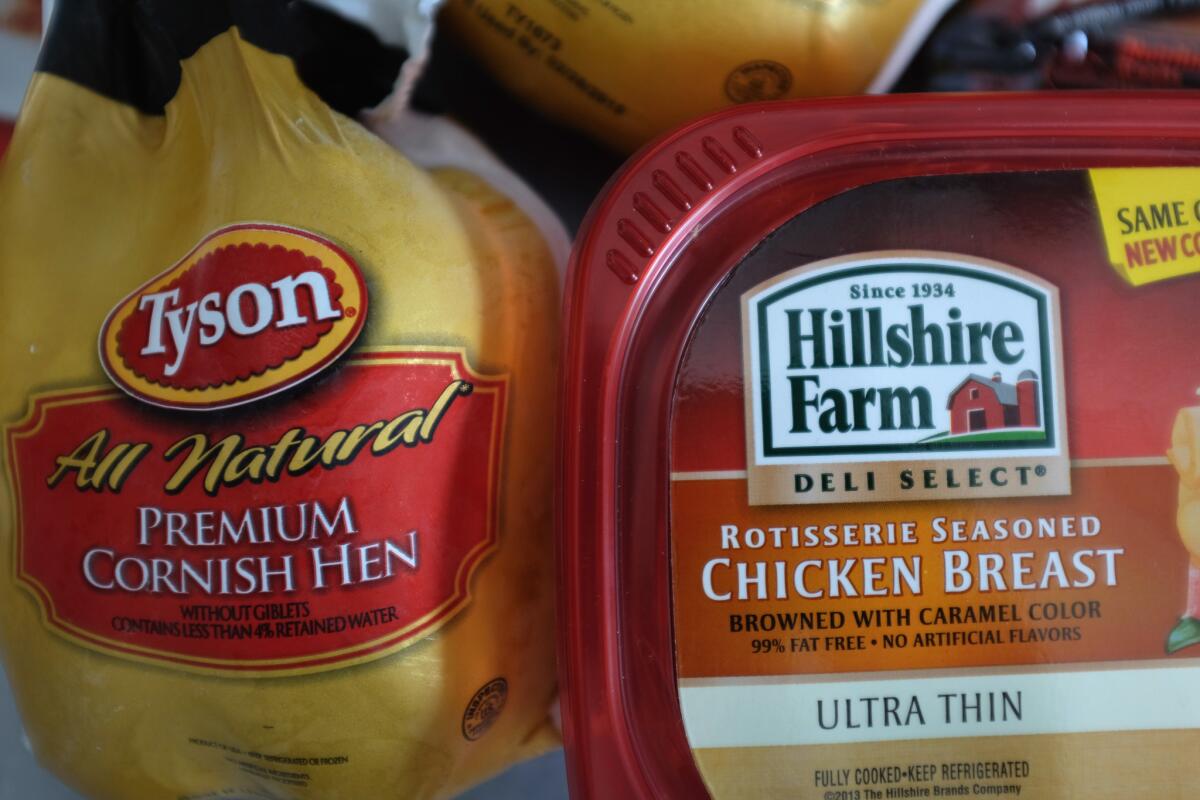Hillshire takes Tyson deal, drops its own bid for Pinnacle Foods

Meat processor Hillshire Brands Co. agreed to be acquired by Tyson Foods Inc. for nearly $8.6 billion in cash and assumed debt as directors rejected another suitor and dropped the company’s own bid for Pinnacle Foods Inc.
Hillshire, the maker of Jimmy Dean sausages, said Monday that Tyson’s offer to buy the company for $63 a share in cash was a “superior proposal” for shareholders and that its directors determined that it would be “inconsistent with their duties” if it didn’t withdraw its offer to buy Pinnacle.
The decision to go with Tyson, the world’s largest meat producer, meant that Hillshire dumped the unsolicited bid from Pilgrim’s Pride Corp. Under a previously pending deal with Pilgrim’s Pride, Hillshire must pay a $163-million breakup fee to the world’s second-largest chicken producer.
The potential Tyson-Hillshire merger would be a “huge leap forward” for prepared foods, said Tyson’s Chief Executive Donnie Smith, and would make Tyson the No. 1 provider of pork products.
“Our strategy has been to grow our prepared foods business, and it has been our aspiration to be a leader in retail prepared foods just as we are in chicken,” Smith said.
Food giants such as Tyson have been snapping up smaller companies to stay competitive in a market plagued by drought, disease and food recalls.
Meat company mergers are especially hot because of rising prices for pork, beef and chicken. Beef prices are significantly higher because the ongoing drought has led to the thinning of U.S. cattle herds to their lowest level in more than 60 years. That also has led to the highest demand for chicken in three years.
Large-scale mergers could mean bad news for consumers. Tyson could essentially dictate the market price for meat products, said Christopher Leonard, author of “The Meat Racket: The Secret Takeover of America’s Food Business.”
“The U.S. meat industry is more consolidated today than it’s ever been before,” Leonard said.
Follow @bri_sacks for food-business news.
More to Read
Inside the business of entertainment
The Wide Shot brings you news, analysis and insights on everything from streaming wars to production — and what it all means for the future.
You may occasionally receive promotional content from the Los Angeles Times.










